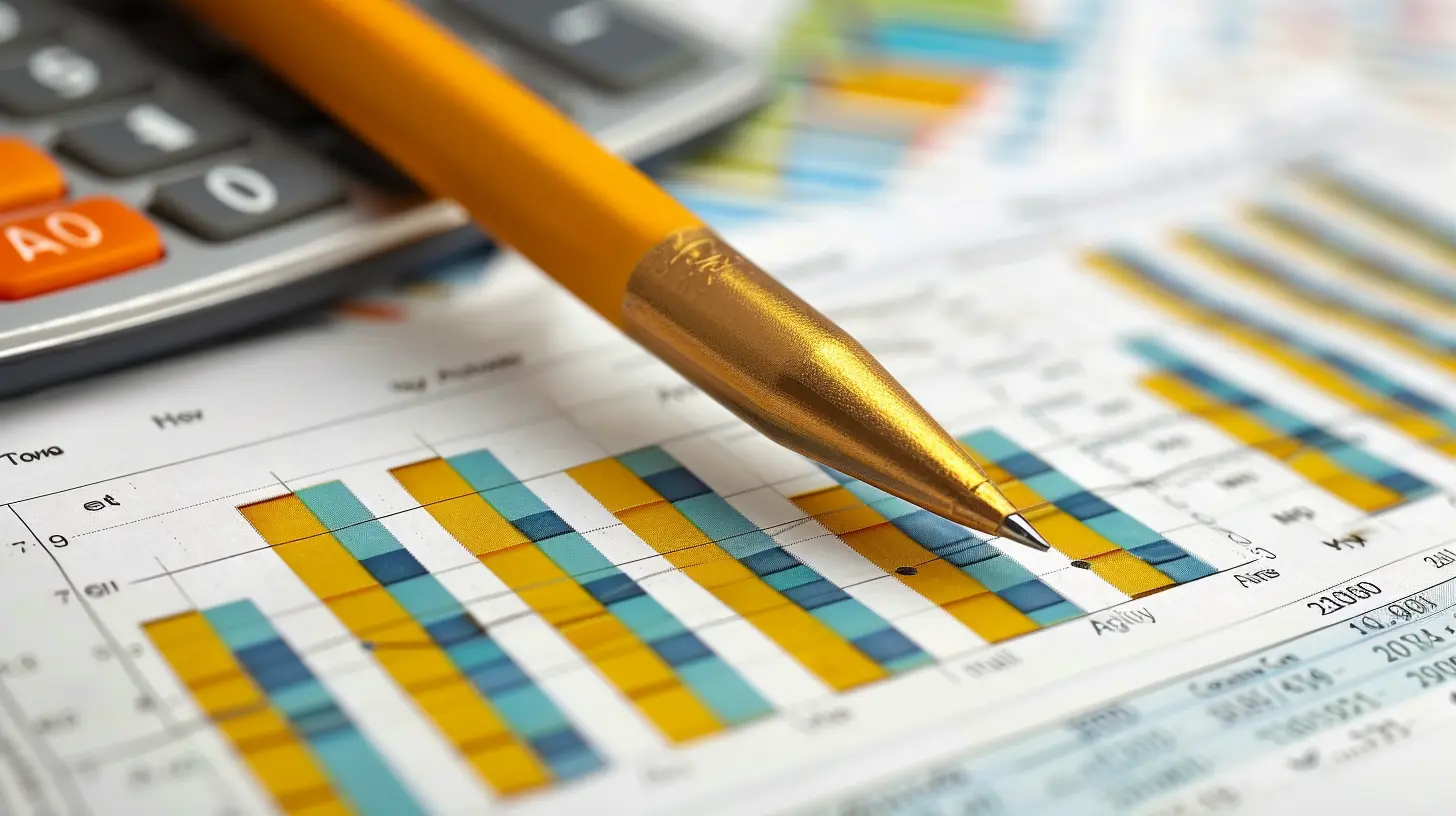How Small Businesses Can Compete Using Data Analytics
28 May 2025
Let’s face it—running a small business is no walk in the park. You’ve got to wear multiple hats, juggle tight budgets, and somehow still stand out from the big players in your industry. But here’s the thing: you don’t need a million-dollar budget to make a splash. You just need to get smart about how you use data. Yep, we’re talking data analytics.
Once reserved for the corporate giants with entire floors of their buildings dedicated to analytics teams, data analytics is now more accessible than ever. And small businesses? Well, they’re uniquely positioned to benefit. Think of it like David going up against Goliath—you might not have size on your side, but with the right tools, you can still pack a punch.
In this article, we’ll explore how data analytics can help small businesses level the playing field and compete with the big dogs. Ready to dive in? Let’s break it down step by step. 
What Is Data Analytics, and Why Should You Care?
Let’s not overcomplicate it. Data analytics is just a fancy term for using information (a.k.a. data) to make smarter business decisions. It’s kind of like Sherlock Holmes putting together clues—except instead of solving crimes, you’re figuring out how to sell more, spend less, or keep your customers happier.For small businesses, data can come from tons of places:
- Your website: Who’s visiting? What pages are they spending time on?
- Social media: Which posts are getting the most traction?
- Sales data: What’s selling like hotcakes, and what’s gathering dust?
- Customer feedback: What are people saying about your business?
All of this information has one thing in common—it’s gold. But unless you’re mining insights from it, it’s just sitting there, gathering dust. 
Why Small Businesses Should Embrace Data Analytics
Big Impact Without a Big Price Tag
Here’s the great news: you don’t need to shell out thousands of dollars on fancy data tools. Today, there are affordable (even free!) platforms that can help you get started. Think Google Analytics for your website, HubSpot for customer data, or even Excel for basic analysis.Small businesses have a major advantage here—you’re nimble. Unlike large corporations weighed down by layers of bureaucracy, you can pivot quickly based on what the data is telling you.
Stay Ahead of Competitors
Look, your competitors are probably already using data to fine-tune their strategies. If you’re still making decisions based on gut feelings or “the way we’ve always done it,” you’re giving them a leg up.Data analytics gives you insights your competitors might overlook. It’s like having a secret weapon in your back pocket. The more you know about your customers, your market, and your operations, the more prepared you’ll be to anticipate trends, spot opportunities, and avoid pitfalls. 
Practical Ways Small Businesses Can Use Data Analytics
Alright, enough theory—let’s get into the good stuff. How can you actually use data analytics in your business?1. Understand Your Customers Like Never Before
Want to know what makes your customers tick? Data analytics can help you create detailed customer profiles. What age group is buying your products? What time of day do they shop? What are their interests?For example, if you own a coffee shop, you might notice your foot traffic spikes during the morning rush. Armed with that data, you can run promotions on breakfast items or start a loyalty program for early risers.
Pro Tip: Tools like Google Analytics and Facebook Insights can give you a treasure trove of data about your audience.
2. Optimize Your Marketing Efforts
Ever feel like you’re throwing spaghetti at the wall with your marketing? Data analytics can help you figure out what’s working and what’s not.Track the performance of your campaigns—whether it’s email marketing, social ads, or content creation. If your last newsletter had a higher open rate on Tuesday at noon, guess what? That’s when you should send your next one.
Think of It This Way: Data analytics is like a GPS for your marketing—it shows you the fastest route to success.
3. Improve Your Pricing Strategy
Believe it or not, data can help you find the sweet spot for your pricing. Analyze sales trends to see how price changes impact demand.For instance, if you sell handcrafted jewelry and notice that too many people are bouncing off your site at a certain price point, that’s your cue to rethink your pricing strategy. Or maybe you realize your premium products aren’t being marketed enough—time to fix that.
4. Streamline Operations
Data isn’t just for boosting sales; it can also help you cut costs and run a tighter ship.Let’s say you own a restaurant, and you notice your inventory reports show that avocados are always going bad before they’re used. That’s your cue to either order fewer avocados or create a special guacamole promotion to move inventory faster.
Efficiency = more profits. Simple math.
5. Enhance Customer Retention
Getting new customers is great, but keeping them? That’s where the magic happens. Use data to identify your most loyal customers and reward them.For example, track purchase history to see who’s coming back time and time again. Maybe it’s time to launch a loyalty program or send them a thank-you discount. A little personal touch can go a long way. 
Breaking Down Barriers: “I’m Not a Numbers Person”
At this point, you might be thinking, “This all sounds great, but I’m not exactly a numbers person.” Don’t worry—you don’t need a Ph.D. in statistics to use data analytics.Start small. Focus on one or two areas that matter most to your business, like customer behavior or sales trends. Use simple tools like spreadsheets or dashboards to make sense of the numbers.
Think of it like learning to cook. You don’t need to be a Michelin-star chef to whip up a decent meal. Just start with the basics, and you’ll build your skills over time.
Tools to Get You Started
Not sure where to begin? Here’s a quick list of beginner-friendly tools to dip your toes into the world of data analytics:- Google Analytics: Perfect for tracking website traffic and user behavior.
- Shopify Analytics (if you run an online store): Great for analyzing sales and inventory trends.
- CRM Software: Tools like HubSpot or Zoho can help you manage and analyze customer data.
- Social Media Analytics: Use built-in tools like Facebook Insights or Instagram Analytics to track engagement.
- Excel or Google Sheets: Sometimes, good old-fashioned spreadsheets do the trick for basic analyses.
Most of these tools come with tutorials or guides, so you’re not left fumbling in the dark.
The Future Is Data-Driven—Are You Ready?
Here’s the bottom line: data analytics isn’t just a trend. It’s the future. Businesses that embrace data-driven decision-making are the ones that will thrive.As a small business, you have everything you need to get started: affordable tools, a nimble mindset, and a treasure trove of data just waiting to be tapped. So why not give it a shot?
Think of data analytics as your business’s new superpower. You don’t need to have the same resources as the big guys—you just need to work smarter. And with data on your side, you can do exactly that.
all images in this post were generated using AI tools
Category:
Data AnalysisAuthor:

Remington McClain
Discussion
rate this article
3 comments
Bennett Hodge
Leveraging data analytics empowers small businesses to make informed decisions, optimize operations, and understand customer needs. By embracing these insights, entrepreneurs can enhance their competitiveness and drive growth, turning data into a strategic asset that fuels long-term success.
June 11, 2025 at 10:53 AM

Remington McClain
Absolutely! Leveraging data analytics is crucial for small businesses to enhance decision-making, optimize operations, and better understand customers, ultimately driving growth and competitiveness.
Nathaniel McKinley
Great insights on leveraging data analytics for small businesses! Your points on actionable strategies and cost-effective tools highlight the importance of data in driving growth and decision-making. It’s encouraging to see how even small enterprises can harness this powerful resource to compete effectively.
June 10, 2025 at 3:13 AM

Remington McClain
Thank you for your feedback! I'm glad you found the insights valuable for small businesses. Data analytics truly can empower even the smallest enterprises to thrive.
Nicole McIntyre
Why did the small business bring a data analyst to the party? Because they heard analytics can help them 'byte' into the competition! Remember, folks: with the right data, even David can take down Goliath—just make sure you have a slingshot!
June 9, 2025 at 11:21 AM

Remington McClain
Great pun! Utilizing data analytics is indeed a powerful strategy for small businesses to level the playing field. With the right insights, they can effectively tackle bigger competitors. Keep slinging that data!



